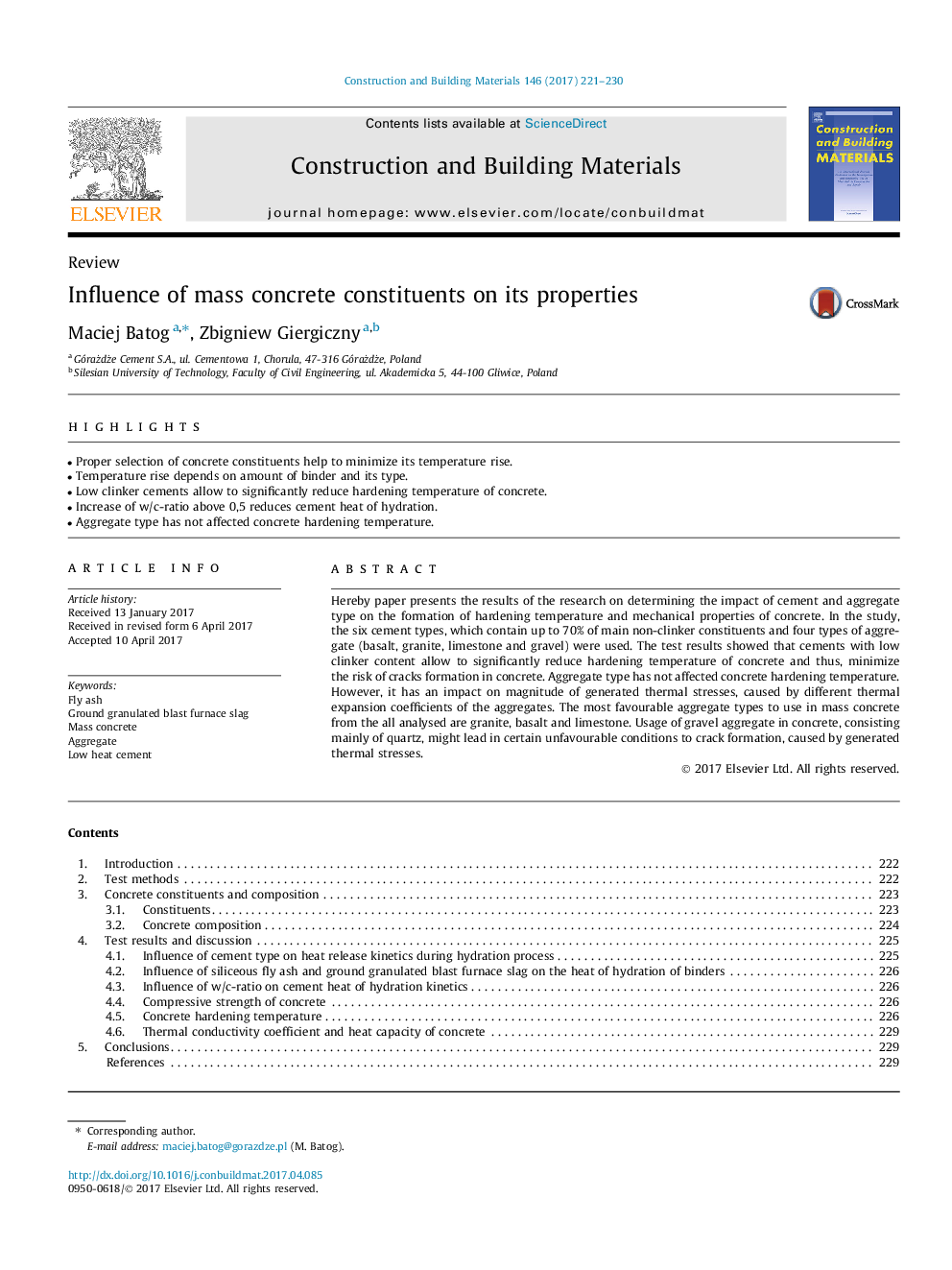| Article ID | Journal | Published Year | Pages | File Type |
|---|---|---|---|---|
| 4913273 | Construction and Building Materials | 2017 | 10 Pages |
Abstract
Hereby paper presents the results of the research on determining the impact of cement and aggregate type on the formation of hardening temperature and mechanical properties of concrete. In the study, the six cement types, which contain up to 70% of main non-clinker constituents and four types of aggregate (basalt, granite, limestone and gravel) were used. The test results showed that cements with low clinker content allow to significantly reduce hardening temperature of concrete and thus, minimize the risk of cracks formation in concrete. Aggregate type has not affected concrete hardening temperature. However, it has an impact on magnitude of generated thermal stresses, caused by different thermal expansion coefficients of the aggregates. The most favourable aggregate types to use in mass concrete from the all analysed are granite, basalt and limestone. Usage of gravel aggregate in concrete, consisting mainly of quartz, might lead in certain unfavourable conditions to crack formation, caused by generated thermal stresses.
Related Topics
Physical Sciences and Engineering
Engineering
Civil and Structural Engineering
Authors
Maciej Batog, Zbigniew Giergiczny,
